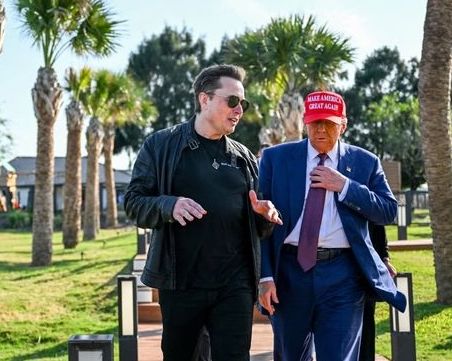Former Iranian MP says Iran not a priority for Trump

Former lawmaker Heshmatollah Falahatpisheh dismissed Tehran’s attempts to signal readiness for talks with the incoming US administration, arguing that Iran is not a top priority for Donald Trump.

Former lawmaker Heshmatollah Falahatpisheh dismissed Tehran’s attempts to signal readiness for talks with the incoming US administration, arguing that Iran is not a top priority for Donald Trump.
Iranian media on Friday quoted Heshmatollah Falahatpisheh as saying, "Trump is focused on domestic issues, with most of his time spent negotiating with business owners and corporate leaders in the United States. Therefore, Iran should not be viewed through the lens of players like Netanyahu. It is Netanyahu who is trying to make Iran Trump’s top priority in the Middle East."
Falahatpisheh, former chairman of the Iranian parliament's foreign relations committee during the 2010s, is a prominent and authoritative voice among Tehran’s commentators who are permitted regular media appearances. Known for his more independent and pragmatic views on foreign policy, he often contrasts with others who tread more cautiously in their remarks.
His remarks came in the wake of a call by one of President Masoud Pezeshkian's aides, who recently advocated direct negotiations with Trump, emphasizing the need for a new foreign policy to strengthen Iran’s international position.
Ali Abdolalizadeh, who headed Pezeshkian’s election campaign, said on December 31 that "We must negotiate with Mr. Trump. The country's issues cannot be left unresolved, and the entire establishment has also reached the conclusion that direct negotiations are necessary."
Falahatpisheh in his remarks emphasized that “Based on the historical experience with Trump and his associates, his close circle consistently takes a hardline stance against Iran, and Trump’s own history is defined by his policy of maximum pressure.” However, he argued that at this juncture the issue of Ukraine is the priority for the president-elect.
He voiced his opposition to attempts by certain Iranian officials to make conciliatory remarks directed at the incoming US administration. “Proactively seeking negotiations with the United States cannot safeguard Iran's national interests. I see that some of Mr. Pezeshkian's associates are talking about engaging in dialogue with Trump and are attempting to send unreciprocated signals. These very signals reflect weakness in Iran's position.”
Falahatpisheh emphasized that Iran's primary focus in the coming month should be on strengthening its national security. He highlighted the importance of addressing domestic discontent, particularly by tackling economic challenges, as a critical first step.
"I believe Trump’s approach toward Iran will involve reviving the maximum pressure policy while also presenting a proposal for negotiations. Naturally, the extent to which this proposal warrants consideration will determine how Iran shapes its foreign policy in response," Falahatpisheh said.